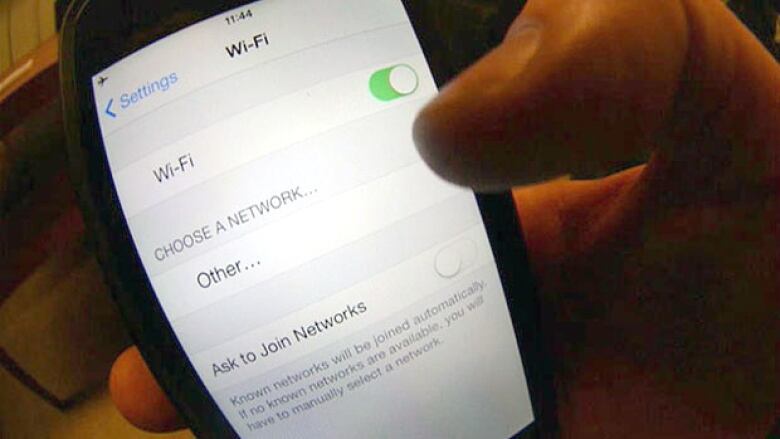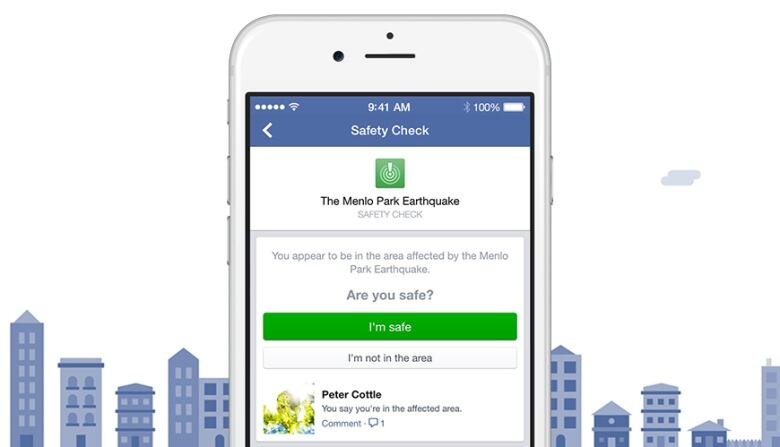France may consider public Wi-Fi ban during emergencies
Le Monde report says French police also want to outlaw Tor anonymity software

Many people have become used to the convenience offree public wireless network connections.But in the wake of the November attacks in Paris, French officials are considering shutting down shared Wi-Fi during states of emergency.
CBC Radio technology columnist Dan Misener explains why.
What would the proposed ban on free Wi-Fi involve?
We don't have all the details. What we do know about this so far comes from a leaked document seen by the French newspaper Le Monde.
According to their report,the French Ministry of Interior is currently looking at two proposed bills. One is related to France's state of emergencyandthe other deals withcounter-terrorism.

They also are reportedly looking at completelyoutlawing Tor, free software which allows anonymous internet browsing and messaging.
The rationale behind the proposals is that when people use public Wi-Fior softwarelike Tor,they're difficult to track.And in a state of emergency, like last month's attacks in Paris, law enforcement wants to be able to track suspects.
What's the reaction been to this news?
Unsurprisingly, technologists and privacy advocates are not fans of these proposed changes.They've characterized it as a "knee-jerk" reaction to the attacks in Paris.
Nathan Freitasisa fellow at the Berkman Centre for Internet and Society at Harvard University in Cambridge, Mass. He argues it's precisely duringstates of emergency when open Wi-Fi is at its most useful, especiallywhen the regular cellphone networks are down.
"People are just trying to get a message out that says, 'I'm alive,' or 'Where are you?' or 'Help,'" he said."So the idea that you would lock down, or make it illegal to do that, when at the same time...your mobile infrastructure can't handle these things, justmakes no sense."
Technically speaking, how feasible is banning public Wi-Fi?
It would be difficult. Even if France did enact a law banning public Wi-Fi during states of emergency, it's not clear how they would or couldenforce such a law.
Public Wi-Fi is widespread in France. Many French cities have municipal Wi-Fi networks, libraries have shared public Wi-Fi, and homesand businesses have Wi-Fi networks.
When I lived in France in 2012, my home router had two wireless networks one for my private, home network, and another thatwas publicly accessible. I didn't do anything special to set that up. It was the default, out-of-the-box setting.
Blocking the anonymitysoftwareTorcould be done, but it would be difficult.The only country to have effectively blocked Tor so far is China, with itsso-called "Great Firewall" the set of legislation and projects that regulates the use of the internet there.
How has public Wi-Fi been used in past crisis situations?
There are many examples, going back to the early 2000s, when Wi-Fi was very new.

He said when the cellphone networks went down, businesses like Starbucksopened up their Wi-Fi to the public.
More recently, after the 2013 Boston Marathon bombings, law professor Jonathan Zittrain called for individuals and businesses to open up their Wi-Fi networks, to take some of the strain off cell networks. He said that kind of access is vital in such situations.
"In times of trouble, whether it's a natural disaster of something more sinister like an attack, the most important thing that people affected want to be able to do is communicate with one anotherand with the authorities," he said.
"And often that's exactly when infrastructure goes down, because it's been interrupted."
What should we watch for next on theseproposed Wi-Firestrictions?
Le Monde reported that we could see legislation aroundthe two bills the French government is consideringas early as 2016.
Whether the French police's desire to lock down Wi-Fi and Tor will be part of that legislation, though,remains to be seen.
To be clear, the reports so far are based ona leaked internal document. That means we don't know if this is the approach of one personor a sentimentthat's more widely held in the French government.
Beyond France, though, this could bepart of a much larger debate around the potential forcommunications technologies like Wi-Fi, or encryption technologies like Tor, to be used forgood, versus the possibility they may be used for evil.












_(720p).jpg)


 OFFICIAL HD MUSIC VIDEO.jpg)
.jpg)



























































































